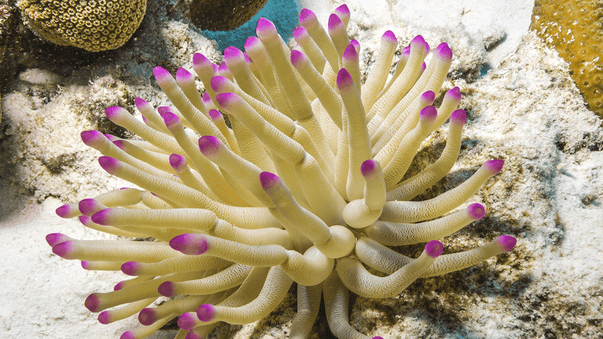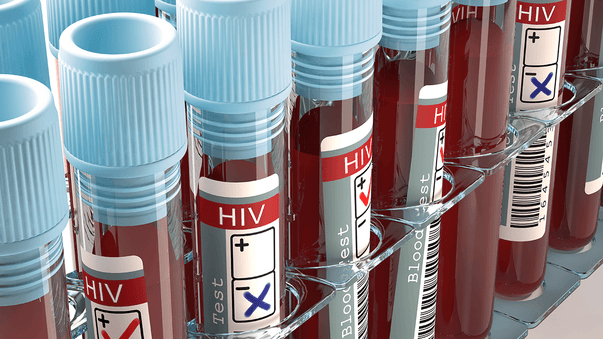Anthocyanin May Improve Epigenetic DNA Expression

Epigenetics doesn’t change DNA, it changes how DNA is expressed. Some parts of a cell’s epigenome are influenced early in development and those parts tend to be difficult to change. But much of the epigenome of our cells is continuously changing due to factors in the environment, our diet, and lifestyle factors like stress and exercise.
This first study below used different methods than the studies I usually share here. Researchers gave participants a supplement rich in anthocyanin (commonly extracted and concentrated from fruits such as blueberries), then harvested some cells from their blood and cultured those cells to see how behavior had changed. This method provides the benefits of an in vivo study, allowing the compound to be taken orally and then digested, absorbed, and incorporated throughout the body, along with the benefits of an in vitro study, focusing on the function of individual cells.
Anthocyanin may improve gene expression. Supplementation of Juçara Berry (Euterpe edulis Mart.) Modulates Epigenetic Markers in Monocytes from Obese Adults: A Double-Blind Randomized Trial. This study involved 27 people between the ages of 31 and 59 and a BMI between 30 and 40 (classified as obese). Participants took a placebo or a supplement containing 131 mg of anthocyanins for 6 weeks. Blood samples were collected before and after supplementation to assess fatty acid profiles and collect immune cells for further investigation. Monocytes, a type of immune cell in the blood, were cultured in a normal medium or in a medium with lipopolysaccharides to stimulate inflammation. Although the physical characteristics of participants didn’t change during the trial, the serum fatty acid profiles were improved by supplementation. The amount of saturated fatty acids in the serum decreased after supplementation, while the amount of omega-3s and monounsaturated fatty acids increased. To determine epigenetic effects, the researchers looked at the expression of 4 genes that alter the epigenetics of a cell (DNMT1, DNMT3a, DNMT3b, and MeCP2) in the cultured monocytes. The expression of these genes increased after supplementation and exposure to the lipopolysaccharides. The expression of the MeCP2 protein significantly increased after supplementation. The treated cells reacted differently when exposed to an inflammatory stimulus: their new gene expression changed the proteins which were synthesized, and the serum fatty acid profile changed, which could improve health conditions that often accompany obesity. The researchers concluded that the anthocyanin-containing supplement modified the gene expression in monocytes, which then improved the serum fatty acid profile.
Caffeine may enhance cognitive function. Effect of single caffeine intake on neuropsychological functions in healthy volunteers: A double-blind placebo-controlled study. This study assigned 100 participants to a placebo or 200 mg caffeine after 3 days of avoiding caffeine. A series of cognitive tests and driving simulation tests were performed before supplement/placebo administration and 30 minutes after. The group that received caffeine scored better on the SAT cognitive test and the Harsh braking test. The SAT cognitive test reflects executive function, vigilance, and attention by measuring precision and time when subjects notice a change in regularity on the screen. The Harsh braking test reflects cognitive psychomotor performance and mental arousal by measuring reaction time when a pedestrian appears on the simulator screen. The researchers concluded that a single dose of caffeine improved cognitive functions, including vigilance, attention, and executive functions.
Rhodiola may decrease fatigue. Rhodiola rosea in Subjects with Prolonged or Chronic Fatigue Symptoms: Results of an Open-Label Clinical Trial. This study had 100 adult participants with prolonged fatigue (unexplained, persistant fatigue for at least 2 months) take 400 mg of rhodiola extract for 8 weeks. Participants went through a physical examination, blood test, and various questionnaires designed to rate fatigue, depression, sleep quality, and executive function at the beginning of the trial and after weeks 1,4, and 8. Note this study did not have a control group receiving a placebo. It was looking to identify the areas in which rhodiola may be most beneficial. Many of the measures improved. There were significantly lower scores for general fatigue, physical fatigue, mental fatigue, impaired concentration and memory, irritability, and worries after 8 weeks of treatment. The greatest improvements were seen after a week of supplementation but scores continued to improve through the 8 weeks of the study. The researchers concluded that the positive results of this study justify further research of rhodiola and fatigue, including new placebo-controlled studies.
More Articles
Don't fall behind! Thrivous monitors new human studies of nootropic and geroprotector supplements, so you can make the best decisions based on the latest science. Supplement Science Updates are part of the free Thrivous newsletter. Subscribe now to receive email about human enhancement, nootropics, and geroprotectors, as well as company news and deals.
Read more articles at Thrivous, the human enhancement company. You can browse recent articles in Thrivous Views. See other Supplement Science Update articles. Or check out an article below.
-
DNA Switch for Whole-Body Regeneration
Harvard researchers have found that a master control gene, called "early growth response" (EGR), controls the process of whole-body regeneration in ...
-
Another HIV Remission Confirms Therapy Option
Scientists have reported the achievement of sustained remission from HIV-1, the virus that causes AIDS, in a patient (see below). ...


